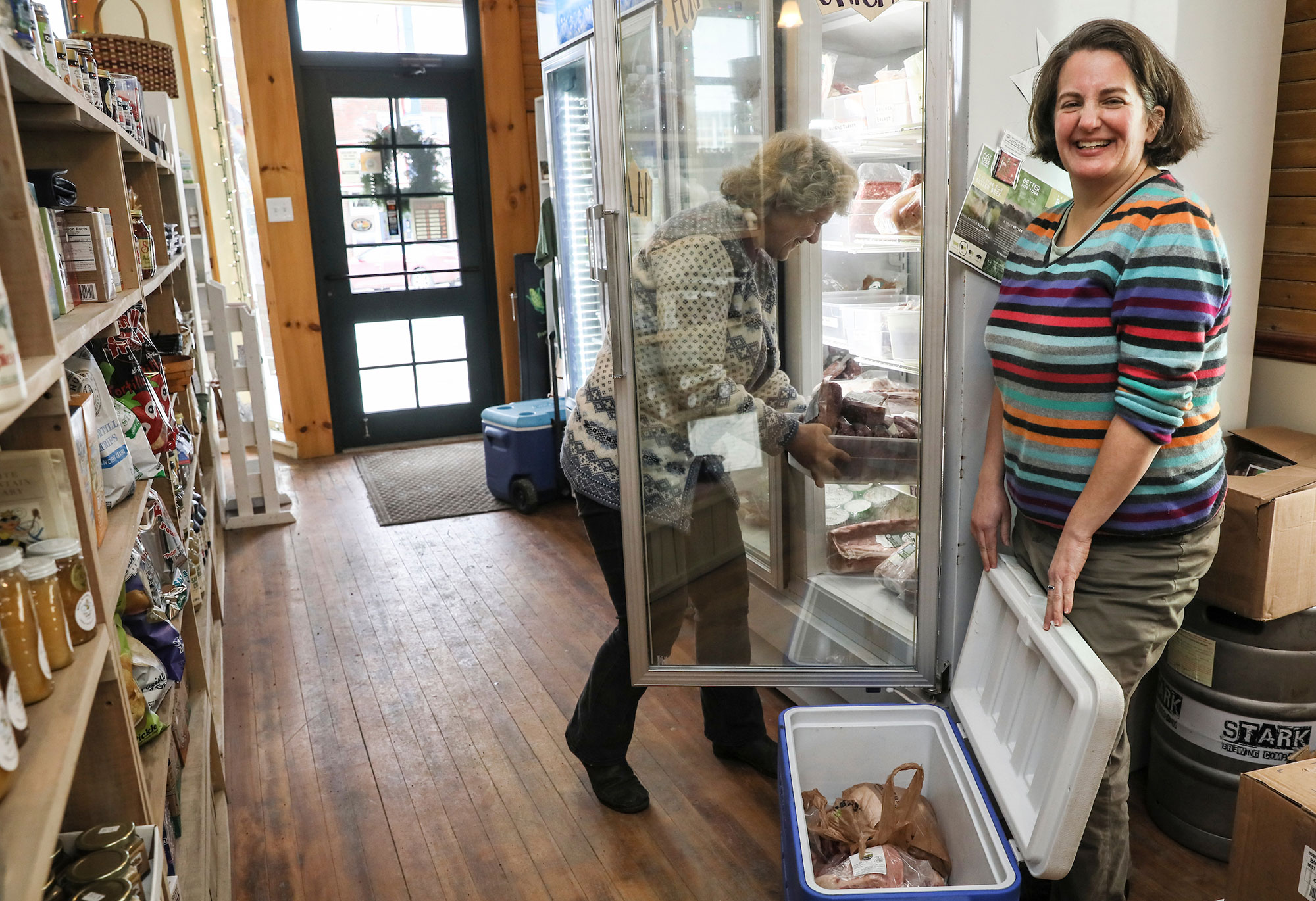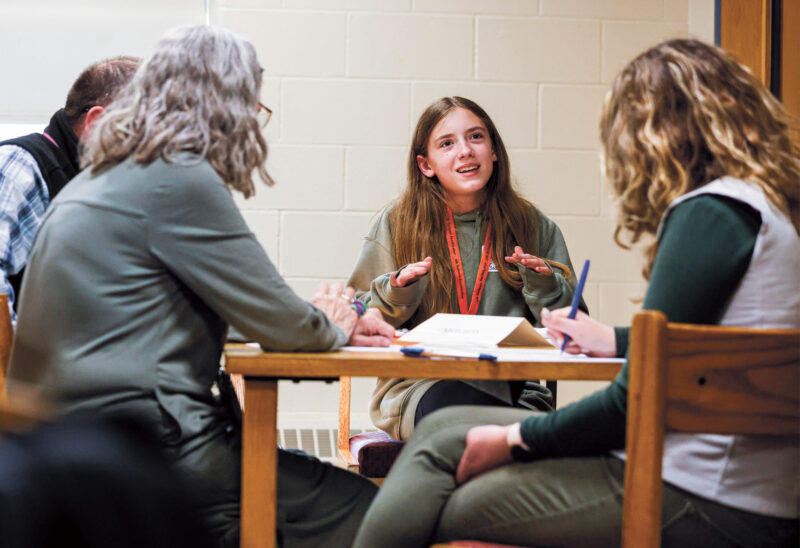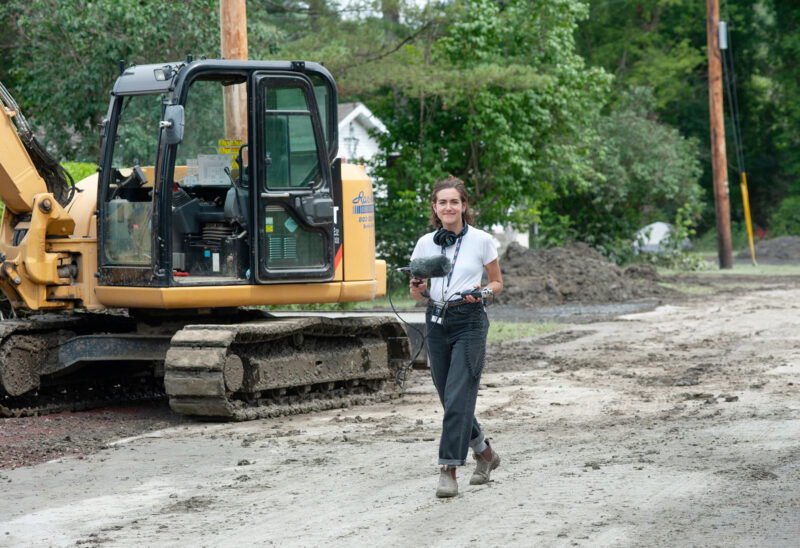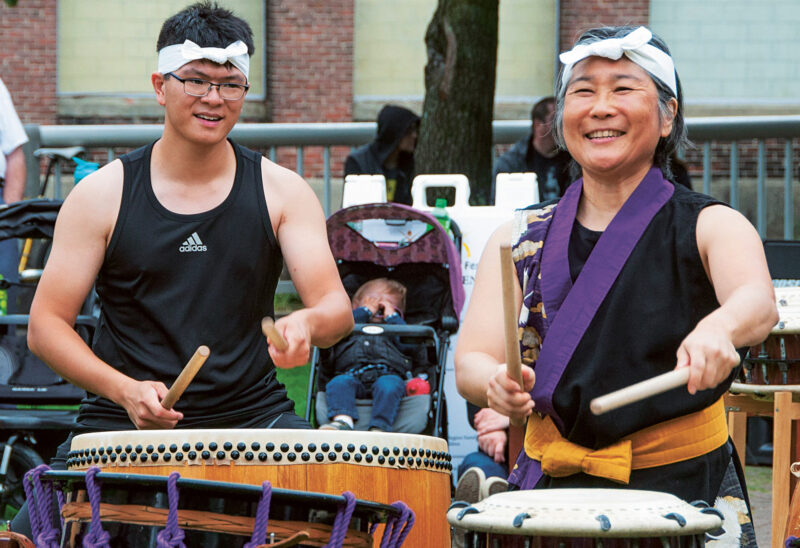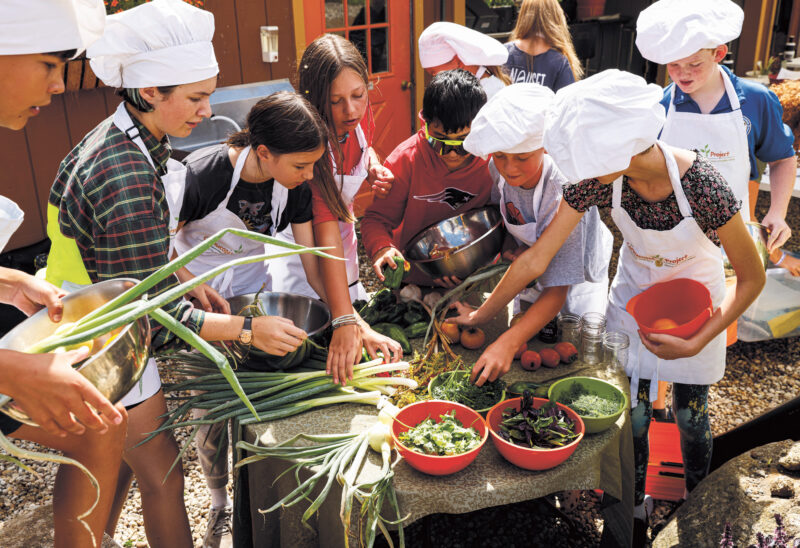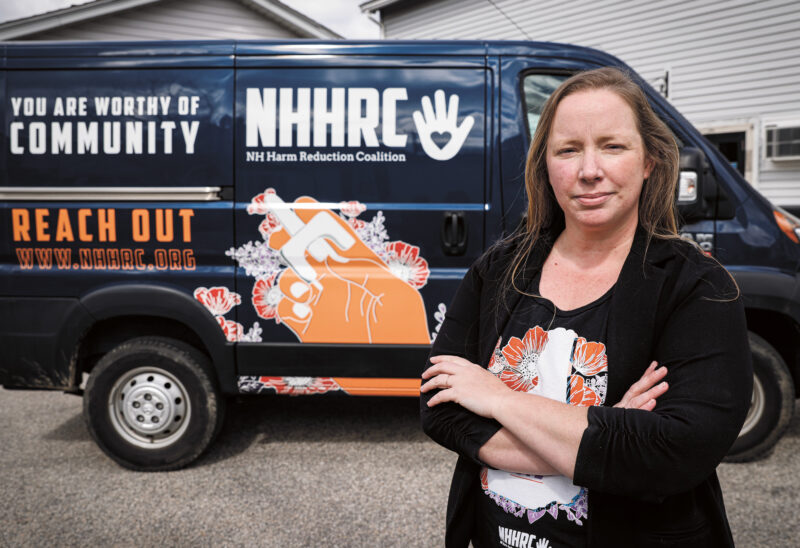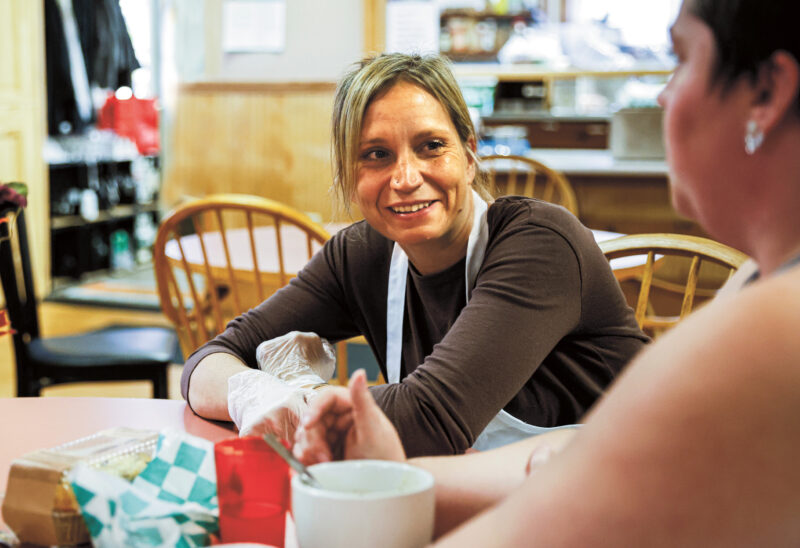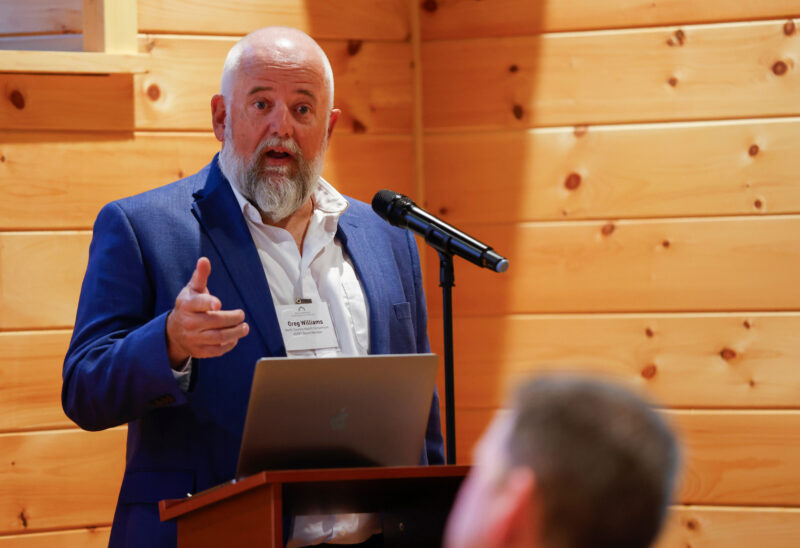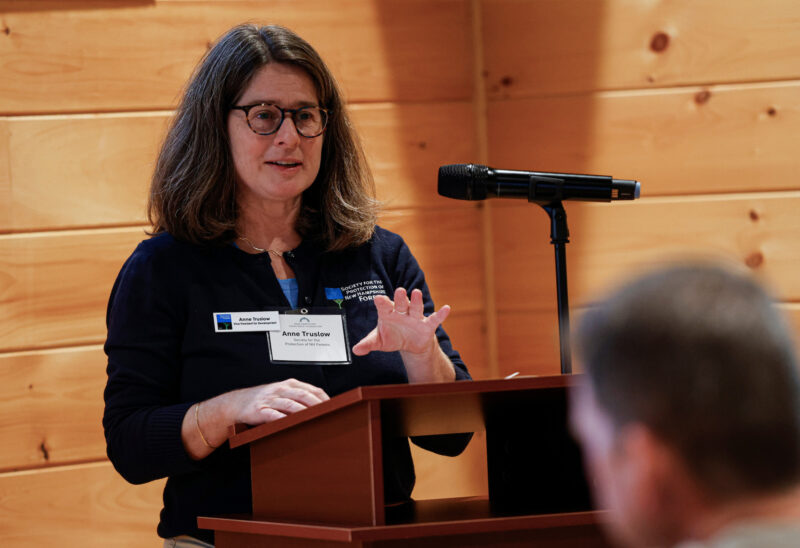When Melissa Grella started a non-profit organization in 2015, she wanted a name that would “resonate with the work I wanted to do in the community.” She settled on “Taproot,” after the main root of certain plants, the one from which other, smaller roots extend and grow.
She’s been fostering the healthy growth of that Taproot — and its various initiatives — ever since.
Taproot Farm & Environmental Education Center’s four main entities — the Root Seller Marketplace on Main Street in Lancaster, the Lancaster Community Garden just around the corner, North Country Gleaners, and the Farm, Food, & Forest environmental education program — are all centered on building a stronger, more sustainable, healthier community. Taproot’s programs now reach hundreds of people and its staff has grown to include Grella, a full-time and part-time sales associate at the Root Seller, a gleaning program coordinator, and seasonal education staff.
“It is so important for people to have access to fresh, local, healthy foods — and for farmers to have places to sell what they produce,” said Phoebe Backler, senior program officer for the Neil and Louise Tillotson Funds, which have supported Taproot since its earliest iteration as the Lancaster Community Garden in 2011. “Taproot is providing such an important set of services and connections for our communities.”
Lancaster Community Garden
Grella organized the Lancaster Community Garden eight years ago. Twenty-one gardeners planted the first beds the following spring. Now under the Taproot umbrella, the Community Garden holds 35 raised beds, which gardeners rent by the season for $15 per bed (discounts for additional beds and scholarships are available). The garden also includes some beds dedicated to raising vegetables for Taproot’s gleaning program, which distributes fresh food to people in need.
The garden not only provides growing space for people who don’t have have space to grow their own garden — it also fosters a sense of community.
“I was not a vegetable gardener when I started there,” said Cynthia Keith, who usually walks or bikes to tend the three beds she rents at the garden. “There is some informal sharing of care [for beds] when someone is away, and of produce when someone has a surfeit. Although I may not see others in the garden often, I find I do feel in community with them by virtue of our shared space and interest.”
Since the garden’s inception the use of the land has been donated by the landowners, but now Taproot is purchasing the property after a successful fundraising campaign. This will allow Taproot to implement a permaculture design that will include fruit trees, communal crops, perennial gardens, interpretive displays, and a timber-framed gazebo, transforming the space into a botanical garden in addition to plots for individual gardeners.
Root Seller Marketplace
Opened in 2015 with five vendors, the Root Seller now works with more than 70 local direct vendors. These are mainly farms from throughout the region, but also include local artisans. The marketplace serves a growing demand for locally produced goods and provides an off-farm retail outlet open seven days per week.
“Farmers’ markets are wonderful for farmers, because we’re able to be there in-person, but those markets are only each once a week during the season,” said Meryl Nevins of Prospect Farm in Lunenburg, Vermont, which sells its organic chicken, pork and beef at the marketplace. “Root Seller is open seven days a week and has an informed staff that is able to represent us while we are off herding pigs and making deliveries to restaurants.”
Offerings lining The Root Seller’s shelves and coolers vary with the season, but generally include an array from meat, fruits, and vegetables to honey, maple products, and locally made tomato sauce and other canned goods. There are also retail and bulk food sections, beer and wine from regional brewers and wineries, and health and beauty items.
Taproot will move into a new, larger space next year, in the Parker J. Noyes building on Main Street, recently purchased by the nonprofit Northern Forest Center. The move will allow the Root Seller to double in size and provide Taproot with dedicated office space, be the base for the North Country Gleaners operations, and also have a commercial kitchen that will be used for a multitude of purposes by several Taproot programs.
North Country Gleaners
Taproot also works with farmers and backyard gardeners to support its gleaning program, which saves excess produce from the compost heap and directs it to communities who welcome it. These include food pantries, soup kitchens, and subsidized housing developments whose residents are otherwise unlikely to see fresh, local produce. If a farmer has, say, several pounds of tomatoes she can’t sell, the gleaning program can take those and deliver them to people who can use them, reducing food waste and food insecurity at the same time.
“Most people here have to rely on somebody else to get to the grocery store,” said Beth Vincent, service coordinator for McIntyre School Apartments in Whitefield, low-income housing for 27 residents aged 62 or older. “A lot of our seniors grew up with gardens. They don’t get out to the farmers’ markets, so having fresh vegetables delivered to their door is just incredible.”
The challenge is coordinating what farms have in excess with what food pantries and other groups need, and this is the job of the gleaning coordinator. The commercial kitchen in Taproot’s new space will allow the processing and saving of additional gleaned food for distribution at a later date – as tomato sauce or frozen berries, for instance. North Country Gleaners is a member of the New Hampshire Gleans network.
Farm, Food, & Forest Education
Taproot’s Farm, Food, & Forest Program, whose holistic philosophy of education lies at the intersection of agriculture, food, and ecology, started with gardening at the Lunenburg School in 2017. Offerings also include programming for the Kingdom East After School Program in Lunenburg and a nature-based summer camp for elementary school children on the grounds of White Mountains Regional High School. With two AmeriCorps volunteers coming on board as soon as this winter, Taproot has plans to further expand its education initiatives, including afterschool programming in Lancaster, work with the Lancaster Elementary School’s bioshelter, and programs at the Lancaster Community Garden.
While Taproot’s work is varied, each of its programs stems from the principle that healthy food, a healthy environment, and a healthy community are intimately linked and mutually supportive. Since its founding, Taproot has helped Lancaster become a more vibrant and connected community.
“They’ve brought a big impact,” to this community of 3,500 north of the notches, said Lancaster Planning and Zoning Coordinator Ben Gaetjens-Oleson. “Not only with the community garden, which they continue to improve every year, but also with the Root Seller Marketplace, which provides opportunity year-round for farmers and livestock producers to sell their stuff and to continue to use their land in an appropriate way.”

